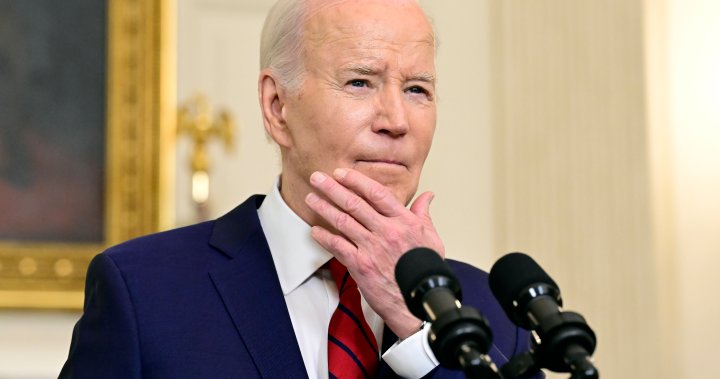As Canadians head into the summer season with hopes of enjoying some barbecue or going on a trip to the beach, nearly half may be on the fence about doing anything at all because their household finances are worse than they anticipated.
A new study by TransUnion Canada released Tuesday found 46 per cent of Canadians’ household finances were worse than planned at this point in 2024, and 58 per cent reported they’re not optimistic about what’s to come financially in the next 12 months.
Personal finance expert Rubina Ahmed-Haq said it’s not a surprise given the cost of living and inflation, noting that while the latter has cooled and the Bank of Canada has lowered its key interest rate, it’s not enough to actually provide relief for many.
“It hasn’t made a huge dent,” Ahmed-Haq, who hosts For What It’s Worth on the Corus Entertainment radio network, told Global News. “In many cases, it means maybe $50 or $60 in your pocket every month if you have a very big mortgage, and so that’s not really life-changing money.”
The TransUnion survey was conducted May 1-10, before the Bank of Canada’s interest rate cut in June.
With about 57 per cent of of Canadian households saying their incomes are not keeping up with the current rate of inflation, it means many feel like, even with a cooling of those numbers, people are still paying higher prices than three or four years ago.

“This is just in our recent memory that we remember what the price of a carton of eggs was or beef is a big one,” Ahmed-Haq said. “It’s not something like, ‘Oh, back in the 1980s things used to cost this much,’ and it’s this feeling of things being cheaper.
Breaking news from Canada and around the world
sent to your email, as it happens.
“This is just a moment in time, and we just happen to be in a pretty difficult financial moment of time.”
Inflation is one of the top three household financial concerns for almost nine in 10 Canadians in the next six months, and it has some making decisions about what to buy and what to save.
“I think most of us feel like our finances can always be better,” Bobby Umar, a Canadian motivational speaker, told Global News.
Umar says though he and his family feel like they’re doing well financially, he feels he still will weigh options and that’s where communication with his spouse and children comes into play.
“Sometimes we will say, ‘Hey, we want to go see that show’ … and other times are like, ‘You know what, do we really need to buy all these clothes? Do we really need to invest in this?’” he said. “I think the thing that helps is we have conversations with each other, which is really important.”
He added that his paycheques can be more sporadic and during the COVID-19 pandemic there was a lot more worry since things like speaking engagements weren’t as doable, but he noted that it made him more mindful of his finances and so he will plan out different decisions and examine how it would impact their future finances.

Making those decisions can be crucial, personal finance expert Barry Choi told Global News, because depending on where you stand personally and financially, you may have to make some changes to things like your emergency fund, retirement or discretionary spending. The TransUnion study, for example, showed that 52 per cent of Canadian consumers plan to cut discretionary spending, with some looking at changing saving habits.
For some, that could even mean a career change.
“Next thing to consider is start applying for jobs that pay you more money because let’s be realistic, your employer will not give you a raise for the sake of it,” Choi said. “So it’s your best bet to look for another job or even the worst-case scenario, pick up a side hustle, get some extra hours … just temporarily until things settle down a little bit.”
Getting a new job may not always be doable, so Choi said people should take a look at the overall financial picture.
“Sometimes people get caught up in trying to save money for their emergency fund, which is obviously important, or saving for their retirement,” Choi said. “But if you’ve got credit card bills or any other kind of debt that has high interest, you should definitely be focusing on that.”
© 2024 Global News, a division of Corus Entertainment Inc.




